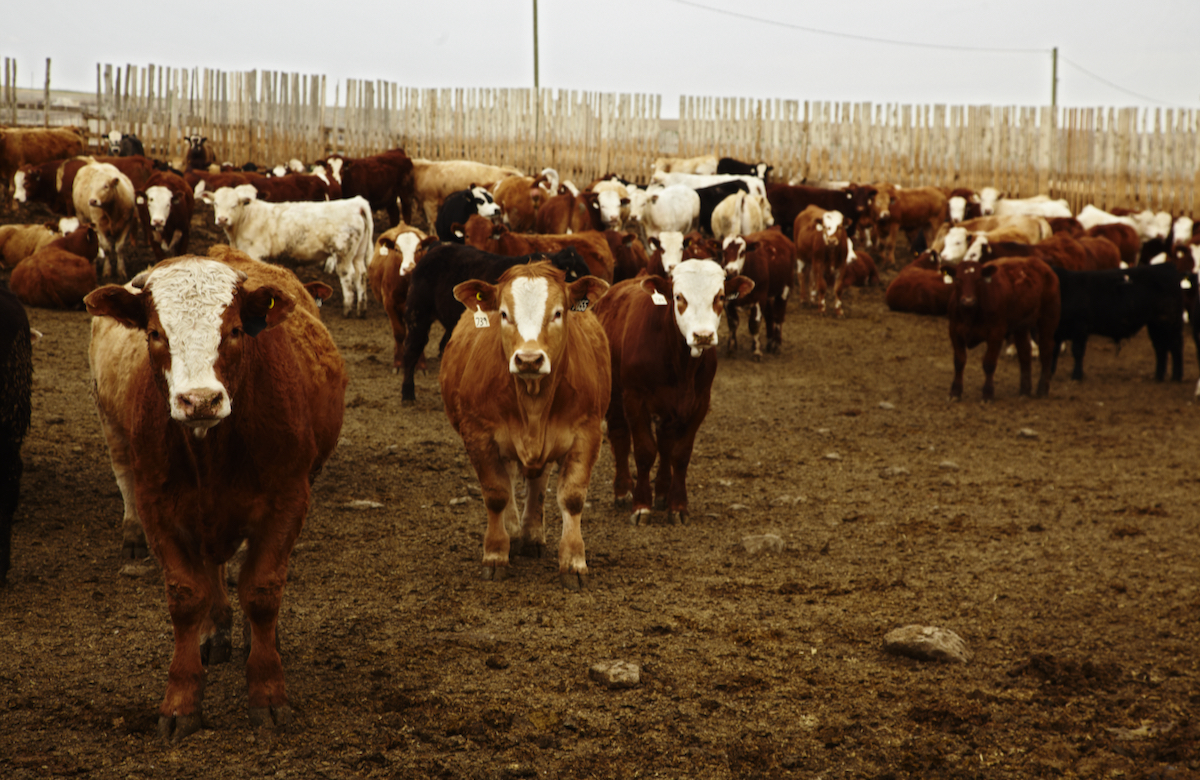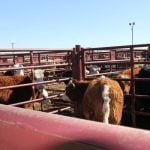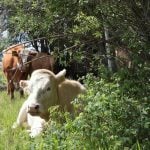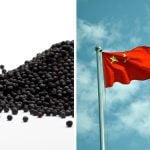Video shot at a farm in Manitoba’s Interlake region by an undercover animal rights activist unfairly depicts animal care practices in the province, farm groups say.
Featured on CTV’s newsmagazine program W5, the grainy footage shows sows in gestation stalls, castration, tail docking, a cull sow being repeatedly shot with a captive bolt and piglets being slammed into cement floors.
But what it doesn’t feature is a balanced look at the industry, said Manitoba Pork Council chairman Karl Kynoch.
“The images that were shown on W5 were very bad — they are going to be horrifying for a lot of the public,” he said. “But you have to remember that video was taken over a three-month period and heavily edited.”
Read Also

U.S. livestock: Cattle at fresh highs, hogs weaken
Cattle futures on the Chicago Mercantile Exchange climbed to fresh highs on Tuesday, as tight supplies and the ongoing closure…
He said some of the images shown do not conform to the organization’s code of practice and should be investigated. He also said the operation shown is the exception, not the norm.
MPC has asked the province’s chief veterinary officer to examine the video, as has Mercy for Animals, the Toronto-based organization that filmed the hogs using a camera hidden on an employee at Interlake Weanlings at Arborg, Man. this summer.
That footage, along with footage from other hog operations outside of the province, became the basis for the CTV program that aired nationally Saturday.
Kynoch said MPC staff and researchers were made available to CTV journalists, but that little of the information provided made it to air. “I don’t believe the footage was balanced,” he said.
Neither did a panel of experts from the Centre for Food Integrity, which reviewed the footage at the request of the Canadian Pork Council.
Dr. Robert Friendship of the University of Guelph points to claims of murky drinking water as unhealthy made in the program as one example of misleading footage.”That’s actually feed in the water and pigs like that,” said Friendship. “That isn’t hurting the animal at all.”
Although some of the footage, such of castration and tail docking, may be disturbing for viewers not accustomed to these practices, Dr. Laurie Conner of the University of Manitoba said the squeals of the pigs can’t necessarily be attributed to pain and suffering.
“It appears to me the pig is squealing just as much because it is being held upside down or because it is being restrained,” said Connor, adding that the industry is looking into things such as using analgesics to make the procedure less painful.
However, some of the practices shown didn’t meet the standards of the panel, including the euthanizing of piglets by slamming them into metal posts.
The Canadian Pork Council said in a statement Monday it would be reviewing the report from the CFI’s animal care review panel “shortly” and that the council is “committed to quickly determining a process to address their findings.”
Mercy for Animals also sent the footage to U.S. humane slaughter expert Temple Grandin, who is quoted in the W5 program as saying “blunt force trauma” as a means of euthanizing piglets should be phased out.
Focus on stalls
Much of the organization’s documentation focused on the use of gestation stalls, which Mercy for Animals said is institutionalized cruelty.
“We promote a milk-, egg- and meat-free diet, but realize that isn’t possible for all people, and so we want to see these animals raised humanely in a group housing situation, with straw bedding,” said the organization’s director of investigations, Twyla Francois, during a press conference in Winnipeg on Monday.
Gestation stalls are already banned in the U.K., Sweden and several U.S. states and as of January 2013 will be outlawed throughout the European Union.
The Manitoba Pork Council has said it intends to help producers phase out gestation stalls by 2025. Maple Leaf Foods, which is in the process of purchasing the featured barn as part of its acquisition of Puratone assets, is on the record as phasing out stalls by 2017.
Francois said she doesn’t believe the industry is sincere about making the move to group housing and it takes shocking exposes to motivate industry and consumers.
However, the organization does not intend to lobby for financial assistance for producers so that they can make a more rapid transition to group housing, which MPC estimates will cost an industry already suffering financial troubles between $500 and $600 per sow.
“We’re moving forward to phase out the gestation stalls, and we’re actually pouring a lot of dollars into research on that right now,” said Kynoch. “We want to make sure we do it in the best possible way to make sure this is a step forward for animal welfare.”
Manitoba’s chief veterinarian Dr. Wayne Lees noted gestation stalls were originally used to improve animal welfare by eliminating food inequality and aggression that can occur in group housing.
“But I think we have found these have created another set of issues and it may be time to move on to another solution,” he said.
“Does not tolerate”
Lees added that his office will review the information received and investigate the allegations before passing its findings onto the Crown for further review.
The Canadian Food Inspection Agency, in a statement Thursday, said it was aware of the video footage and is working closely with provincial officials on their investigation, adding the agency “does not condone or tolerate any abusive behaviour towards animals, whether it is depicted in video footage or observed on-site.”
Provinces and territories, however, have the “primary responsibility” for protecting the welfare of animals, including farm animals. CFIA is responsible for animal welfare during transport and at slaughter at federally-registered plants.
“Most Canadian producers and transporters share our commitment to animal protection and adhere to these regulations,” CFIA said. “In the rare circumstances when these laws are broken, fines are issued and enforcement actions may be taken.”
— Shannon VanRaes is a reporter for the Manitoba Co-operator in Winnipeg. A version of this article will appear in the Dec. 13 edition of the Co-operator. Includes files from AGCanada.com Network staff.
















